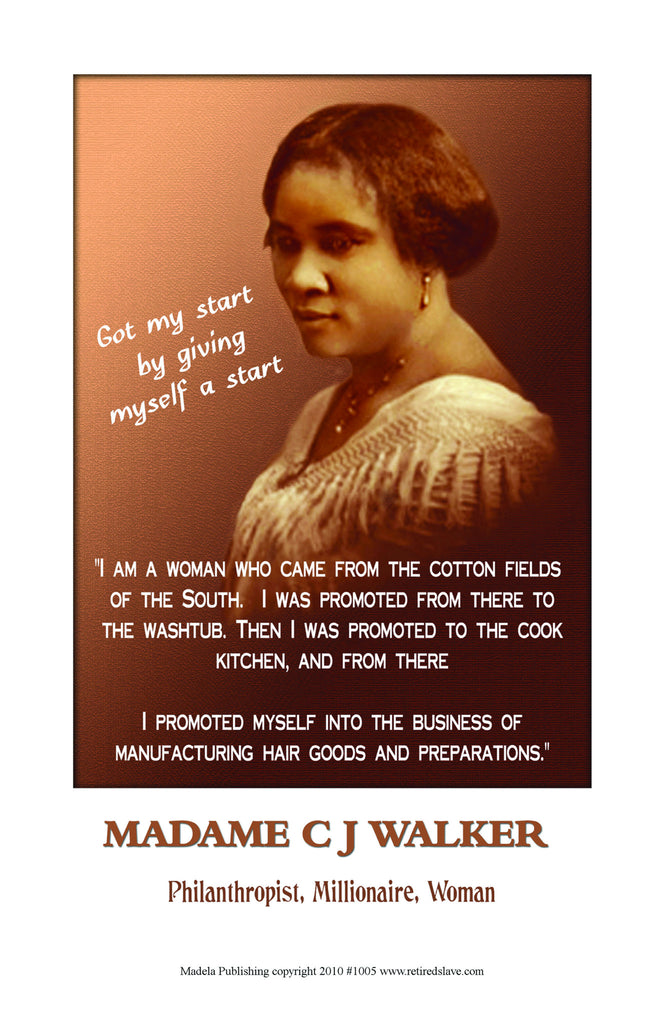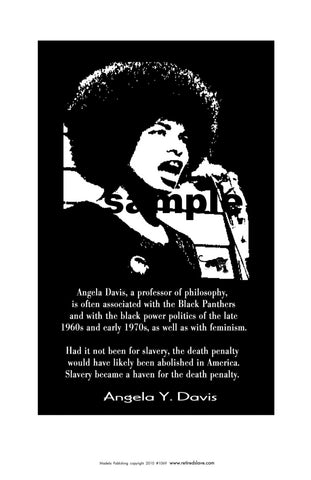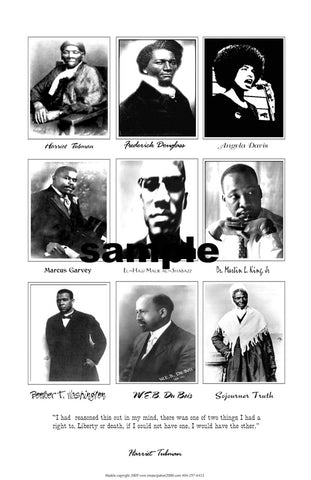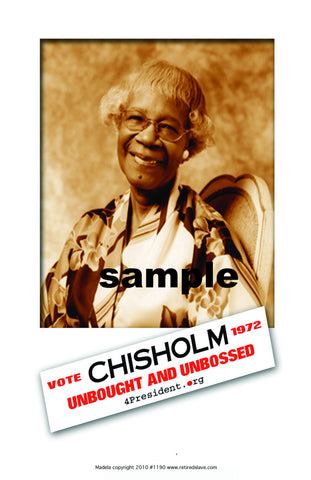Madame C. J. Walker #1033
$ 8.00
Caption from poster__
" I had to make my own living and my
own opportunity. But I made it! Don’t
sit down and wait for the opportunities
to come. Get up and make them."
Madam C.J. Walker (December 23, 1867–May 25, 1919), was an African American philanthropist and tycoon. Born Sarah Breedlove in Delta, Louisiana, the first member of her family born free, she was raised on farms there and in Mississippi and started out by picking cotton on a plantation. She was orphaned at age seven, married at age fourteen (to a man named Moses McWilliams) and widowed at twenty, at which point she moved to St. Louis, joining her brothers. Sarah worked as a laundress for as little as a dollar and a half a day, but she was able to save enough to educate her daughter. While living in St. Louis, Walker joined the St. Paul's African Methodist Episcopal Church. This association had a positive impact on Walker, helping her develop her oration, interpersonal, and organization skills. She became interested in a hair tonic while trying to treat a scalp ailment that left her temporarily bald. In 1905, Sarah moved to Denver, Colorado, working as a hair tonic sales agent for Annie Malone, another black woman entrepreneur. She married her third husband, Charles Joseph Walker, a St. Louis newspaperman, changed her name to "Madam" C.J. Walker, and founded the Madam C.J. Walker Manufacturing Company to sell hair care products and cosmetics. By 1917, it was the largest business in the United States owned by an African American. The Guinness Book of Records cites Walker as the first female American self-made millionaire. Walker did not invent the straightening comb, though some people incorrectly believe that she did. Walker had a mansion called "Villa Lewaro" built in the tiny New York suburb of Irvington on Hudson, New York, and spent hundreds of thousands of dollars on furnishings.[2] The Italianate Villa was designed by archiect Vertner Tandy in 1915. She also owned town houses in Indianapolis and New York. Her New York town house was built in 1915 and demolished by the city in 1941. Walker saw her personal wealth as not an end in itself, but a means to help promote, and expand economic opportunities for others, especially African Americans. She took great pride in the profitable employment— and alternative to domestic labor— that her company afforded many thousands of black women who worked as commissioned agents for Walker's company. One of her employees, Marjorie Joyner, started under her influence and went on the lead the next generation of African American beauty entrepreneurs. Walker was also known for her philanthropy, leaving two-thirds of her estate to educational institutions and charities including the NAACP, the Tuskegee Institute and Bethune-Cookman College.Recent scholarship indicates that Walker was not the first black millionaire. Her tax returns and real estate holdings indicate a net worth of about $600,000 dollars. Her exact worth is irrelevant in the face of her ability to overcome adversity and serve as an inspiration for generations of black entrepreneurs. Walker's daughter A'Lelia Walker carried on this tradition, opening her mother's home and her own to writers and artists of the emergent Harlem Renaissance and promoting important members of that movement.




